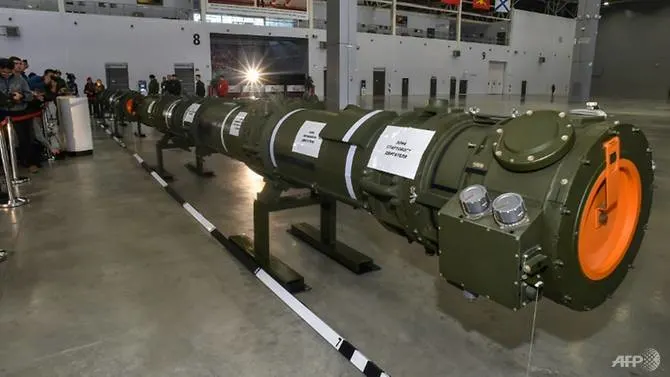China rebuffs Germany's call for US missile deal with Russia
17 February, 2019

China rejected on Saturday (Feb 16) German Chancellor Angela Merkel's appeal to join a Cold War-era arms control treaty that the United States accuses Russia of breaching, saying it would place unfair limits on the Chinese military.
Fearing a nuclear arms race between China, Russia and the United States after the collapse of the Intermediate-Range Nuclear Forces (INF) treaty, which the United States is withdrawing from, Merkel made her call for a global treaty.
"Disarmament is something that concerns us all and we would of course be glad if such talks were held not just between the United States, Europe and Russia but also with China," Merkel told the Munich Security Conference.
Russia and the United States are the signatories to the 1987 INF treaty that bans land-based missiles with a range between 500km and 5,500km and which US President Donald Trump started the six-month withdrawal from this month, blaming Russian violations.
Moscow denies any wrongdoing, but the United States and its NATO allies want Russia to destroy its 9M729 nuclear-capable cruise missile system, which Washington says could allow Russia to strike Europe with almost no warning.
Merkel's suggestion of involving China in a negotiation is seen by European NATO diplomats as a potential way out of the impasse because a new treaty could address American concerns about a growing military threat from China and Russia.
But China's top diplomat Yang Jiechi, who spoke on a panel in Munich, said that Chinese missiles were defensive.
"China develops its capabilities strictly according to its defensive needs and doesn't pose a threat to anybody else. So we are opposed to the multilateralisation of the INF," he said.
China's stated ambition is to modernise its People's Liberation Army by 2035, improve its air force and push into new technologies including very high speed cruise missiles and artificial intelligence.
Its defence budget grew nearly six percent between 2017 and 2018, according to the London-based International Institute for Security Studies (IISS).
Retired Chinese General Yao Yunzhu told delegates a new arms control agreement would only work if it included sea- and air-launched missiles, as well as land, because most of China's military technology was ground-based and the country would not want to put itself at a disadvantage.
Cheaper to build, more mobile and easier to hide, ground-based rocket launchers are an attractive option to China as it develops its armed forces, experts say, whereas the United States operates more costly sea-based systems to comply with the INF.
"China is traditionally a land power and the Chinese military is a ground force," Yao said.
"If China is to enter into these kinds of negotiations, I think it ought to be more comprehensive to include not only land-based but also air and sea-based strike capabilities ... and that would be hugely complicated," she said.
